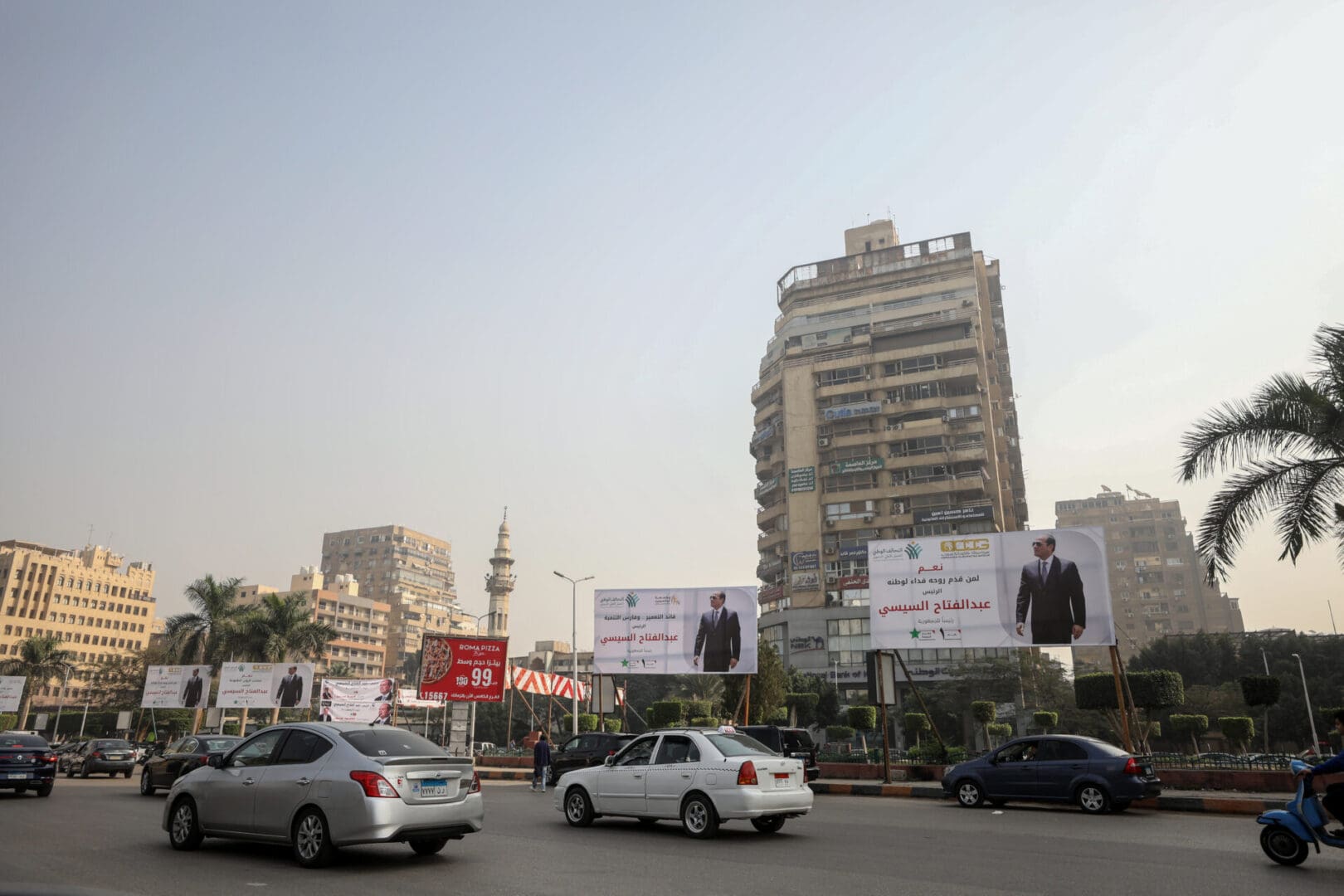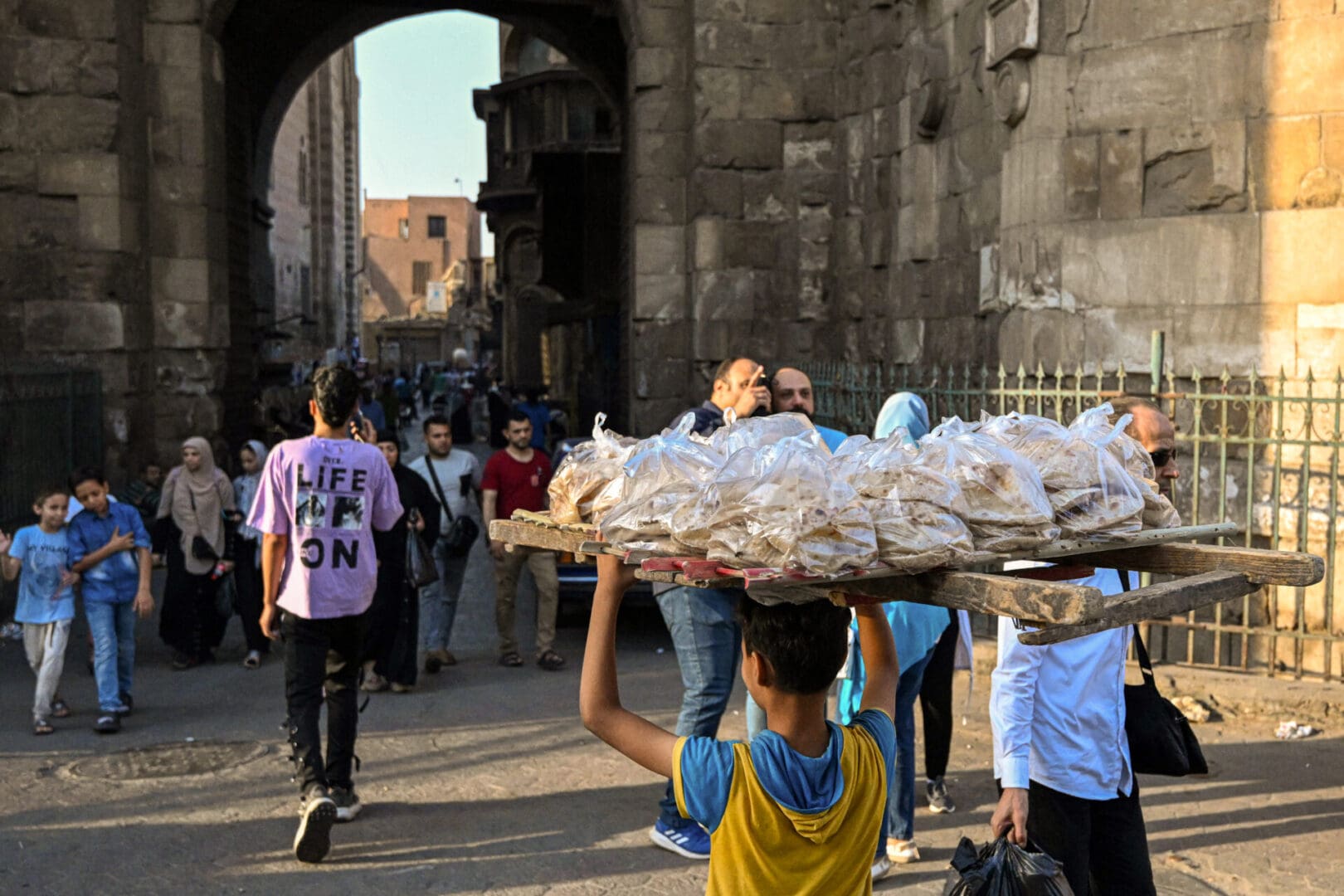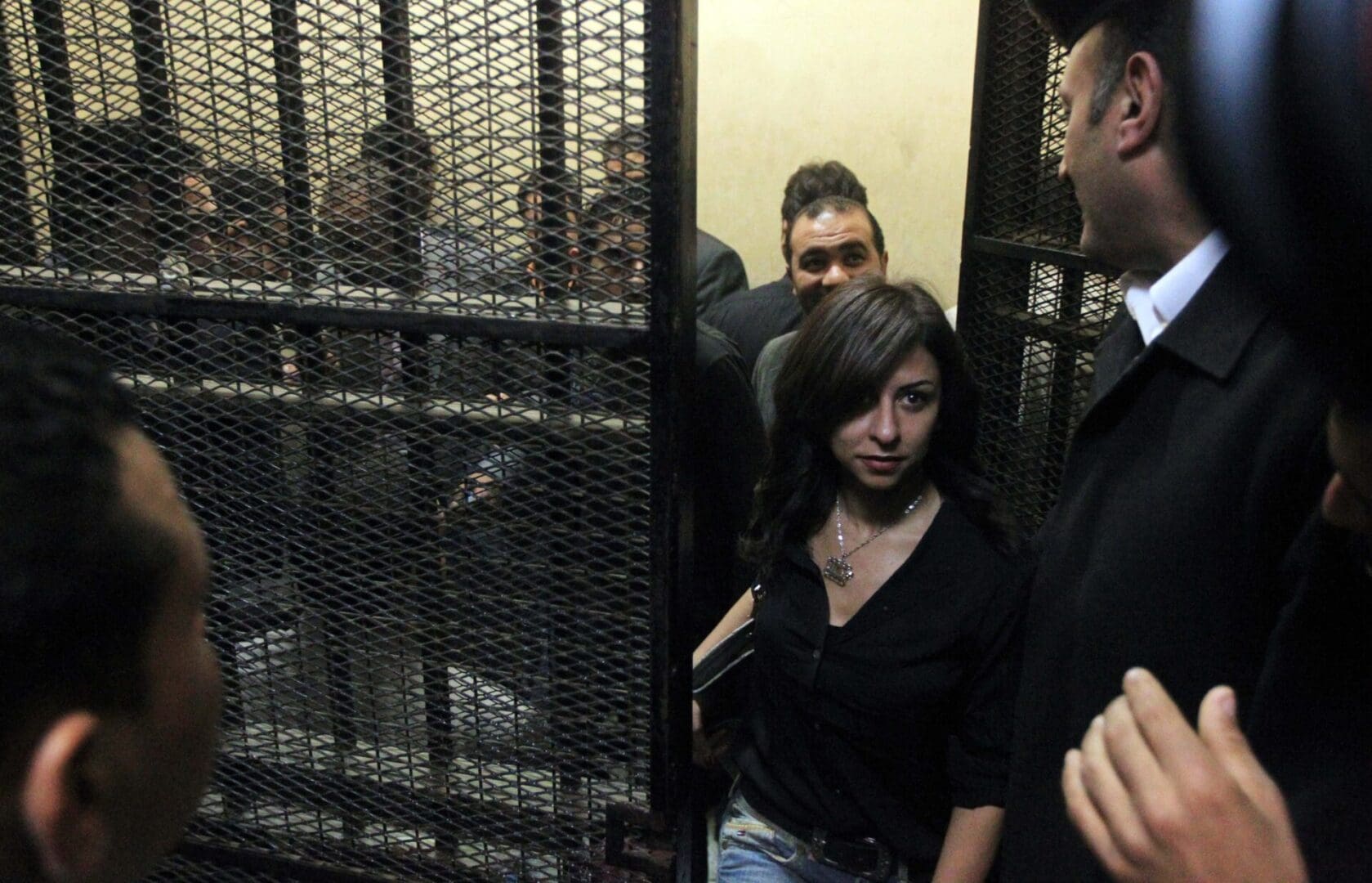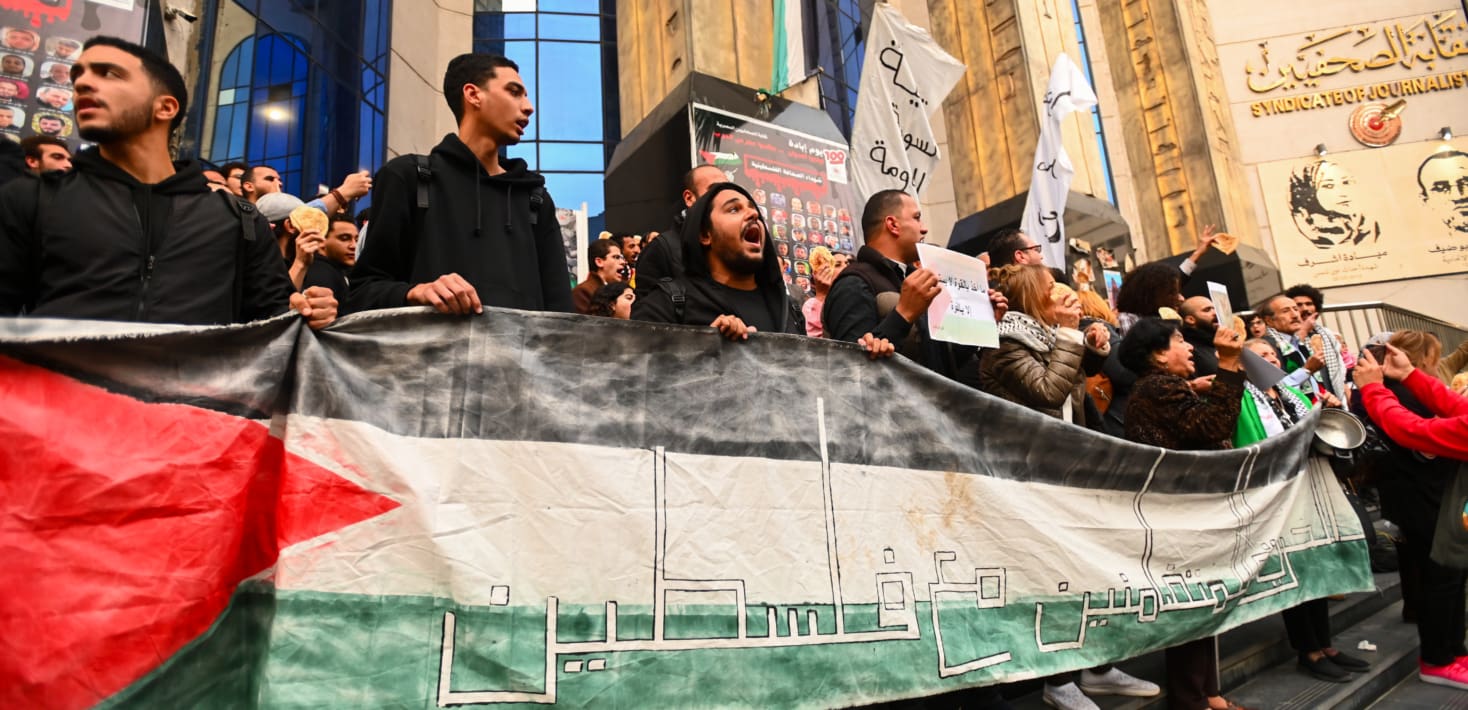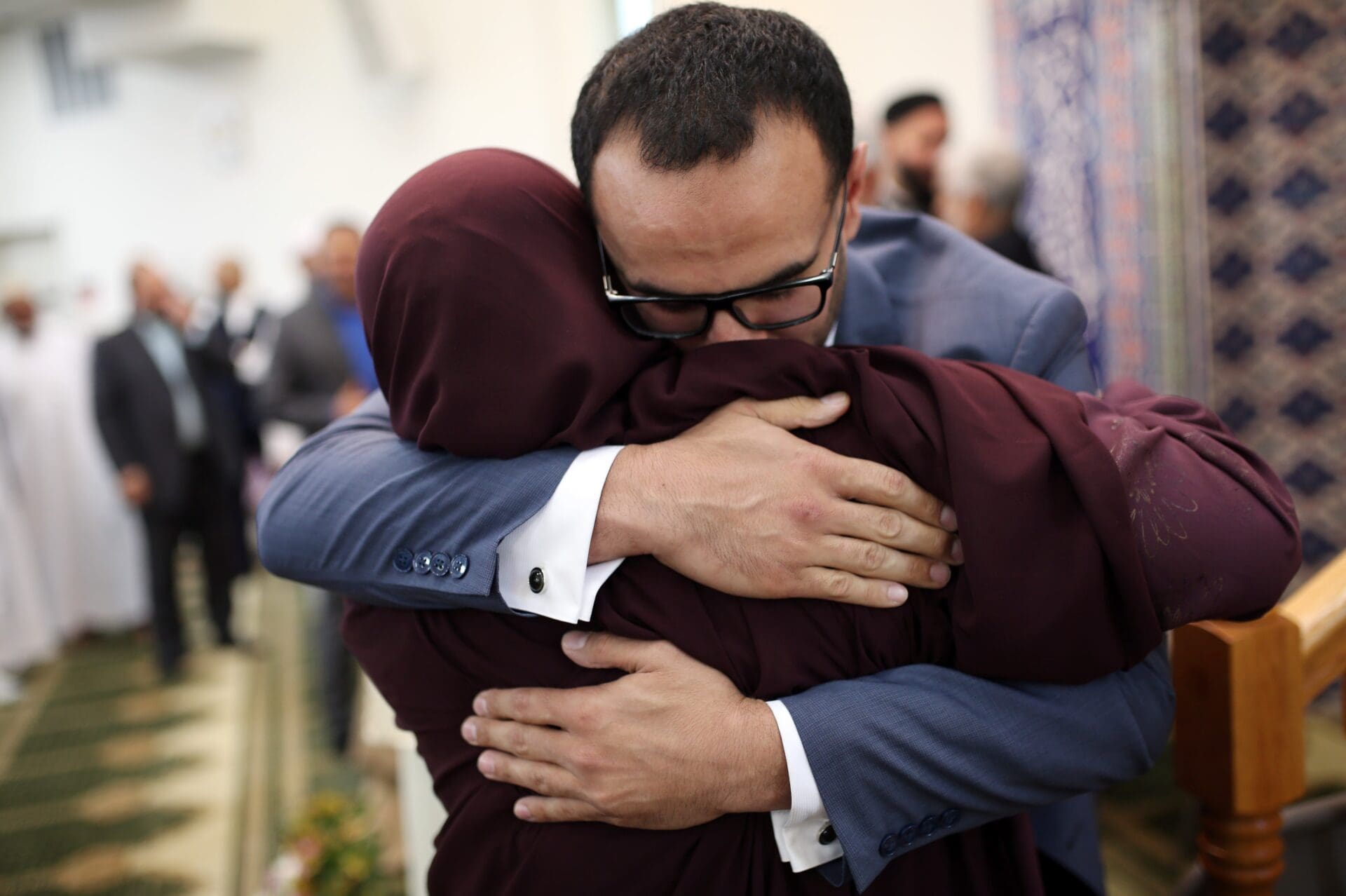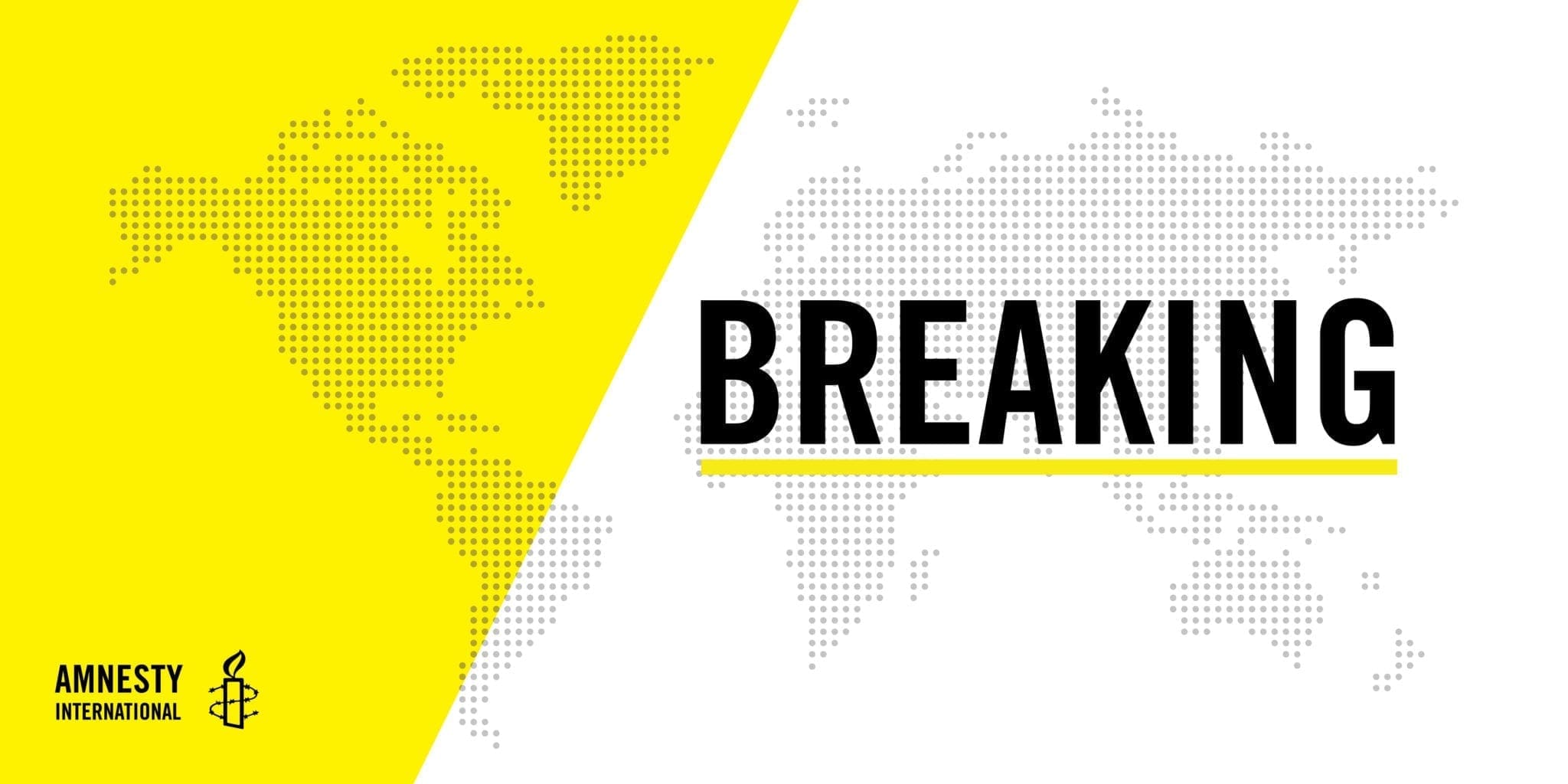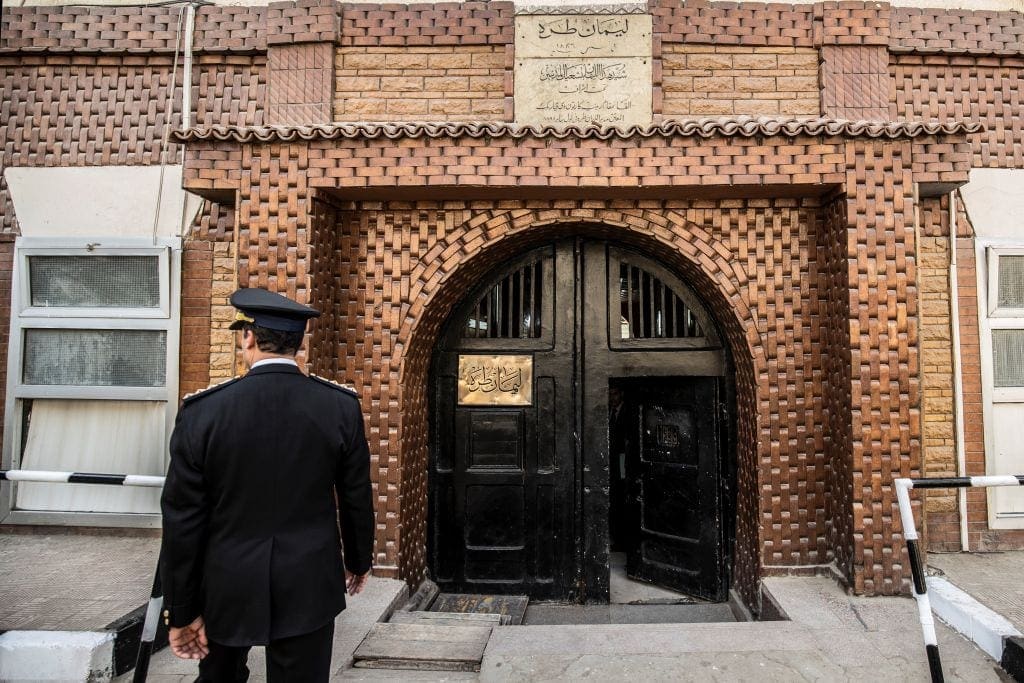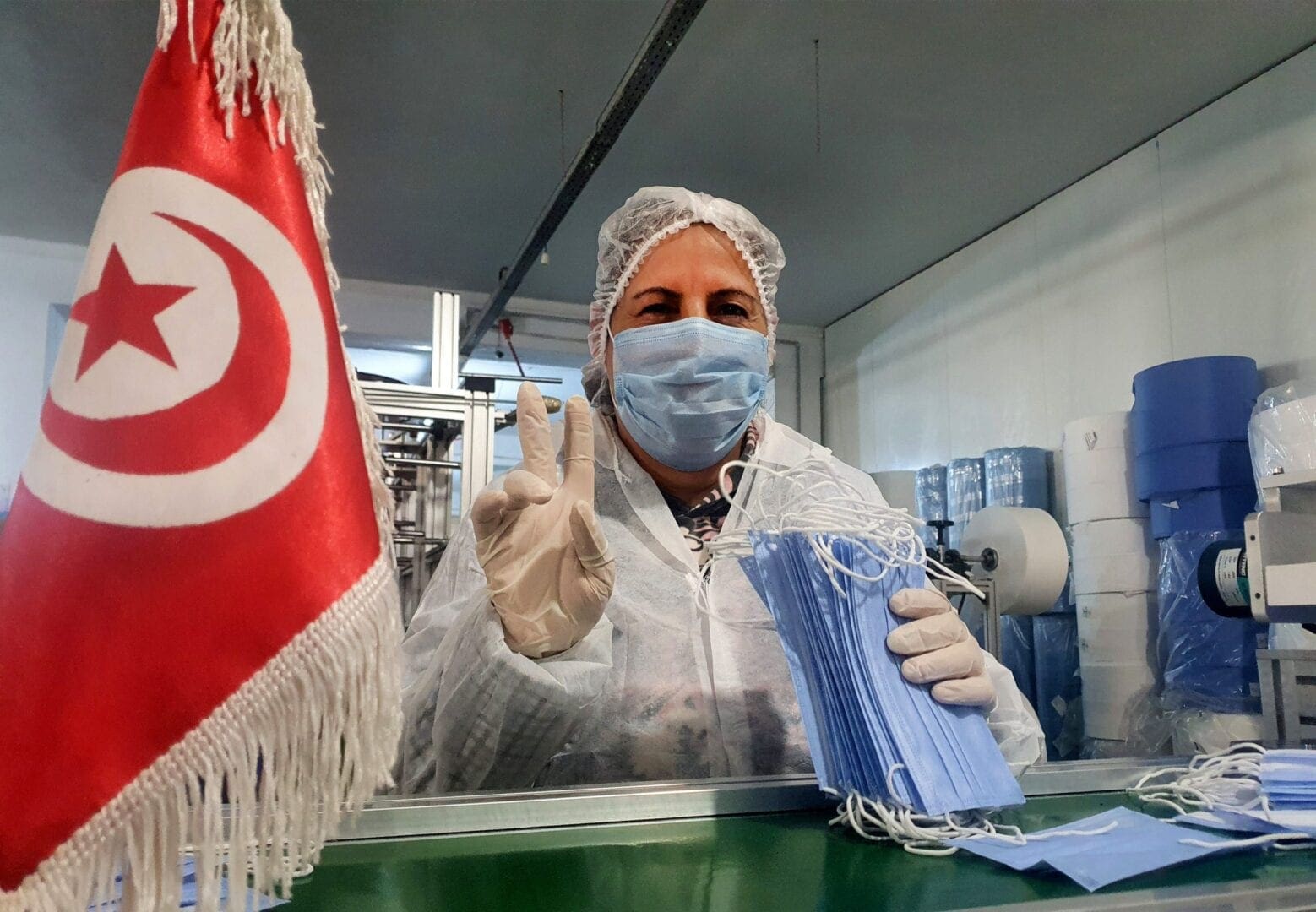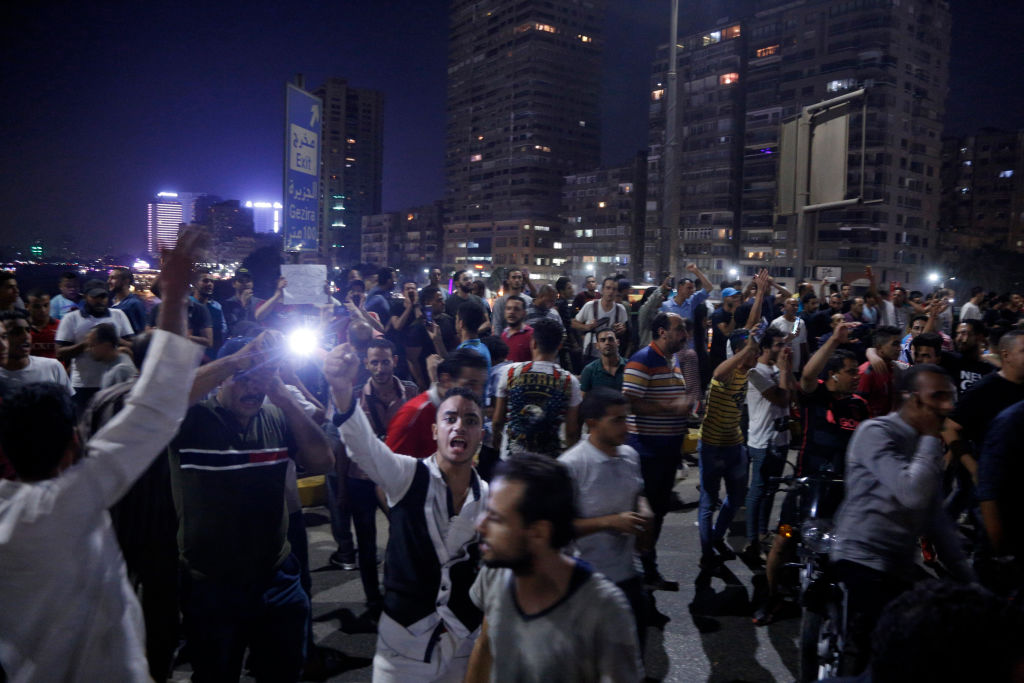EGYPT 2023
Presidential elections took place in a repressive environment, with genuine opposition candidates prevented from running and the rights to freedom of expression, association and peaceful assembly severely suppressed. Authorities released 834 prisoners held for political reasons but arrested over triple that number during 2023. Thousands of actual or perceived government critics remained arbitrarily detained and/or unjustly prosecuted. Enforced disappearances and torture and other ill-treatment remained rampant. Death sentences were handed down after grossly unfair trials but the rate of executions dropped. Impunity prevailed for grave human rights violations committed in 2023 and previous years. Women and girls, religious minorities and LGBTI individuals were subjected to discrimination, violence and prosecution for exercising their human rights. Authorities failed to address economic and social rights affected by the worsening economic crisis, and to protect workers from unfair dismissals by private companies. Forced evictions from informal settlements continued, and tens of thousands of North Sinai residents were barred from returning to their homes. Refugees and asylum seekers were arbitrarily detained for irregularly entering or staying in Egypt, and forced expulsions took place.
Background
The “national dialogue” began in May, but opposition politicians and human rights defenders suspended their participation after renewed arrests of government opponents. The dialogue was suspended in September ahead of presidential elections held in December, amid a deepening financial and economic crisis. The incumbent president, Abdel Fattah al-Sisi, won the elections from which genuine opposition candidates were barred.
The president announced celebrations for the “end of terrorism” in January, while sporadic attacks in North Sinai continued. In August, the Sinai Foundation for Human Rights (SFHR), a rights group, reported the use of child soldiers in military operations in North Sinai. In a report to the UN Committee on the Rights of the Child issued in March, Egypt confirmed that 16 is the minimum age for voluntary recruitment into the armed forces.
From 9 October, Israel repeatedly attacked the Rafah border crossing between Egypt and Gaza and severely restricted entry of humanitarian aid from Egypt into besieged Gaza.
The authorities continued to crush dissent and stifle civil society. Among those targeted were opposition politicians and their supporters, relatives of dissidents abroad, trade unionists, lawyers, and people critical of the authorities’ human rights record and their handling of the economic crisis and the military’s role.
In January, after a grossly unfair trial, an Emergency Supreme State Security Court (ESSC) sentenced 82 people from Suez, including 23 who were children at the time of the alleged offences, to between five years’ and life imprisonment in connection to anti-government protests in September 2019.1
Security forces arrested at least four journalists for their work or opinions. They included Hisham Kassem, a publisher and president of the Free Current Movement, a coalition of opposition liberal parties, who was sentenced in September to six months’ imprisonment and a fine on charges of “defamation” for his online criticism of a former government minister’s alleged corruption and of “insulting” public officials.2
At least 21 journalists remained in jail after being convicted or pending investigations into charges of “spreading false news”, belonging to a “terrorist” group or “misuse of social media”.
Over 600 news, human rights and other websites continued to be blocked. The authorities blocked the website of the NGO Cairo Institute for Human Rights Studies in January, and the news sites of Soulta 4 and Masr 360 in June, but unblocked opposition news website Daarb in April.
Staff at Mada Masr, an independent media platform, faced politically motivated prosecutions and investigations, including in relation to its publication in October of an investigative report on the Rafah border crossing.
Human rights defenders, trade unionists and journalists were among 820 people added to the government’s “list of terrorists” throughout the year without due process, depriving them of civic and political rights.
In April, the deadline for registration under the draconian 2019 NGO Law came into force, putting unregistered NGOs at risk of closure.3
Arbitrary travel bans and/or asset freezes remained in place against at least 20 human rights defenders in connection to their work.
Security forces blocked people from registering their endorsements for prospective opposition candidates for presidential elections and arbitrarily arrested at least 137 supporters and relatives of opposition politician and aspiring presidential candidate Ahmed Altantawy. In September, Citizen Lab confirmed that Ahmed Altantawy’s phone was infected with Predator spyware, assessing with “high confidence” the government’s involvement.
In October, security forces in the cities of Cairo and Alexandria arrested dozens of people, including children, for protesting in solidarity with Palestinians in Gaza. At least 67 remained in pretrial detention over protest and terrorism-related charges at the end of the year, according to the Egyptian Commission for Rights and Freedoms.
During the year, 834 prisoners held for political reasons were released, while the Supreme State Security Prosecution (SSSP) interrogated at least 2,504 suspected critics or opponents arrested in 2023 on accusations of involvement in terrorism-related crimes, cybercrimes, protests and spreading “false news”.
Security forces refused to release 251 detainees who had been acquitted or provisionally released by prosecutors or judges, or had completed their prison sentences.
In June, President Sisi praised detentions for “saving Egypt”.
SSSP prosecutors and judges routinely renewed pretrial detention orders for thousands of detainees without allowing them to meaningfully challenge the legality of their detention. Detention renewal hearings took place via videoconference with detainees connected from prison, denying them the right to adequate defence and exposing them to reprisals for reporting abuse in front of prison guards.
Fair trial guarantees were systematically flouted in political cases. In March, following an unfair trial, an ESSC sentenced 30 people, including the head of the Egyptian Coordination for Rights and Freedoms, to between five years’ and life imprisonment on absurd charges stemming from their human rights work or peaceful dissent.
Security forces, including the National Security Agency (NSA), continued to subject dissidents to enforced disappearance. According to the Stop Enforced Disappearances campaign, at least 70 individuals arrested in 2023 were subjected to enforced disappearance, with the fate and whereabouts of six remaining unknown.
Torture and other ill-treatment remained routine in prisons, police stations and NSA-run facilities.
In January, security forces arrested lawyer Shaaban Mohamed on a street in Giza and subjected him to enforced disappearance in an NSA facility for six weeks, during which he was beaten, suspended and given electric shocks.
Prisoners continued to be held in conditions violating the absolute prohibition of torture and other ill-treatment, including through deliberate denial of healthcare, prolonged solitary confinement, bombardment with bright lights, camera surveillance around the clock, and denial of family visits.4 Dozens of prisoners held in the Badr prison complex in Cairo governorate and the 10th of Ramadan prison in Sharqia governorate, to which hundreds of political prisoners were transferred from mid-2022 and mid-2023, respectively, staged hunger strikes in protest at detention conditions.
Criminal courts, including terrorism-circuits, and military courts imposed death sentences after unfair trials.
In January, a Cairo criminal court sentenced people to death for terrorism-related offences following a trial marred by allegations of enforced disappearance and “confessions” extracted under torture.
The number of executions carried out declined from previous years.
Impunity prevailed for unlawful killings, torture, enforced disappearance and other grave human rights violations committed in 2023 and previous years. Ten years on, no official had been held accountable for the unlawful killings of at least 900 people during violent dispersals of sit-ins by supporters of the ousted president Mohamed Morsi on 14 August 2013.5
Authorities failed to investigate adequately the causes and circumstances of at least 47 deaths in custody following reports of torture or denial of healthcare. Security forces threatened relatives seeking truth and justice with arbitrary detention and other harm.
No officials were held accountable for the death of Mahmoud Abdel Gawad in July in Nabaroh police station, Dakahlia governorate, four days after his arrest, amid credible reports that police beat him severely and gave him electric shocks.
No investigations were opened into the death of lawyer Ali Abbas Barakat on 26 June, who had liver disease. He collapsed and lost consciousness on 10 June in al-Qanater prison in Greater Cairo, but the authorities waited 48 hours before transferring him to a prison hospital.
In September, the Italian Constitutional Court ruled that the trial in their absence of four Egyptian officers accused of the torture and murder of Italian student Giulio Regeni in Egypt in 2016 can proceed in Italy. Proceedings had stalled because Egypt concealed the addresses of the suspects to prevent serving them notices of their trial.
Women continued to face discrimination in law and practice, including in matters of marriage, divorce, child custody and political office. Long-promised amendments to the Personal Status Law stalled amid concerns over lack of meaningful consultation with all women human rights defenders.
The authorities failed to adequately prevent gender-based violence by state and non-state actors, amid a proliferation of reports in Egyptian media of killings of women by family members or rejected suitors.
Women were prosecuted for speaking out against sexual violence or on “morality” grounds.
In November, an appeals economic court quashed a two-year prison sentence against model and TikTok influencer Salma Elshimy and fined her for “immoral” content “violating Egyptian family values”. At least three women influencers remained imprisoned on “morality”-related or other bogus charges.
The authorities continued to harass and prosecute individuals on the basis of their actual or perceived sexual orientation or gender identity. Several of them reported beatings and other abuse in police custody.
Egypt’s severe economic crisis had devastating effects on people’s access to socio-economic rights.
The government allocated about half of the 2023/2024 budget to debt repayment and failed to meet the constitutionally mandated allocation of at least 3% and 6% of GDP to health and to basic and higher education, respectively.
After a deal reached with the International Monetary Fund in late 2022 to float the Egyptian pound, the currency lost significant value. By February, annual inflation hovered around 40%. Food prices rose by 68% between August 2022 and July 2023, according to the Central Agency for Public Mobilization and Statistics (CAPMAS). According to a senior CAPMAS employee, the poverty rate rose significantly in 2022/2023, increasing the urgency for the government to adjust its social protection programmes.
The government failed to take adequate steps to mitigate the impact of the economic crisis on people’s rights, especially to an adequate standard of living. In September, the president announced an increase in the monthly minimum wage for public sector workers from 3,500 to 4,000 Egyptian pounds (USD 114-130), which economic rights experts considered incommensurate with inflation, and the authorities failed to act against private companies not paying the minimum wage.
In September, the president said “hunger and deprivation” were acceptable sacrifices for development and progress.
The authorities continued to impede and intimidate striking workers seeking better pay or working conditions.
In October, security forces prevented striking workers from the Universal Group for Home Appliances from gathering near the company’s headquarters in 6 October city, and warned them against complaining to the Ministry of Manpower. The NSA also summoned and questioned some of the workers about the strike.
At least 14 teachers remained detained pending investigations into terrorism-related charges after they protested in October in the New Administrative Capital in Cairo governorate over their exclusion from appointments. Candidates for civil servant jobs complained about being denied certificates of completion of the military academy course, which became mandatory for appointments in 2023, on security grounds or for being pregnant or overweight.
Authorities continued to carry out forced evictions and house demolitions, including in Cairo’s informal settlements and the historic “City of the Dead” cemetery, home to tens of thousands of residents, and arrested residents for protesting.
In March, an administrative court ruled against residents of Waraq Island in Giza who complained against a 2021 government decision to appropriate their lands for “the public good” without adequate compensation. In February, security forces dispersed a protest by scores of Waraq Island residents using tear gas and carried out arrests.
House demolitions and forced evictions took place in Al-Arish city in North Sinai, according to SFHR.
In October, the army unlawfully fired live ammunition to disperse hundreds of peaceful protesters who staged a sit-in in Sheikh Zuwayed city in North Sinai demanding to be allowed to return to their homes in Sheikh Zuwayed and Rafah city, also in North Sinai, from where they had been forcibly displaced since 2014 due to military operations against armed groups, including Wilayat Sinai, an affiliate of the Islamic State armed group.
Authorities continued to discriminate against Christians in law and practice.
No one was held accountable for sectarian attacks in January against Christians in the village of Ashruba in Minya governorate, which led to injuries and property damage.
The right to build or repair churches remained restricted by a 2016 law requiring approval from security agencies and other state bodies. In May, the prime minister announced that since the law came into force, the government had approved the legalization of 2,815 churches, approximately half of the submitted requests.
In a positive development, in March, a family court in Cairo applied Christian Orthodox by-laws in an inheritance case brought by Huda Nassralla, a lawyer at the Egyptian Initiative for Personal Rights, a rights group. Generally, judges apply the Personal Status Law for Muslims, which discriminates against women in matters of inheritance.
Members of religious minorities, atheists and others not espousing state-sanctioned religious beliefs were summoned and questioned by the NSA or otherwise threatened or harassed, including by their educational institutions and online.
A Yemeni Christian convert from Islam, Abdul-Baqi Saeed Abdo, continued to be detained pending investigations by the SSSP on charges of “defamation of Islamic religion” and belonging to a “terrorist group” for social media posts about his beliefs.6
From April, some 370,000 Sudanese nationals fled to Egypt, according to UNHCR, the UN refugee agency. The authorities tightened entry restrictions, requiring all Sudanese nationals to obtain visas from consulates and security clearance for boys and men aged between 16 and 50. Some Sudanese, Eritrean and Syrian nationals were barred from entry at land borders and at least one asylum seeker was forcibly returned to Sudan for not having valid residency.
Security forces arrested dozens of refugees and asylum seekers from Afghanistan, Syria and sub-Saharan African countries as well as Uyghurs from China for irregularly entering or staying in Egypt. In May, Alfred Djasnan, a Chadian refugee, journalist and president of the African Refugees Rights Initiative, was deported to Rwanda. He had been arrested after sub-Saharan Africans protested against their living conditions in front of the UNHCR office in 6 October city.
Relevant Links
- 1. Egypt: Quash convictions in torture-tainted grossly unfair mass trial of 2019 protesters
- 2. Egypt: Immediately release prominent dissident on trial for online expression
- 3. Egypt: Independent civil society organizations at risk of closure after NGO deadline passes
- 4. Egypt: Tortured son of opposition figure held incommunicado: Anas al-Beltagy
- 5. Egypt: ‘Decade of shame’ since hundreds killed with impunity in Rabaa massacre
- 6. Egypt: Unjustly held Yemeni at risk of deportation: Abdul-Baqi Saeed Abdo

